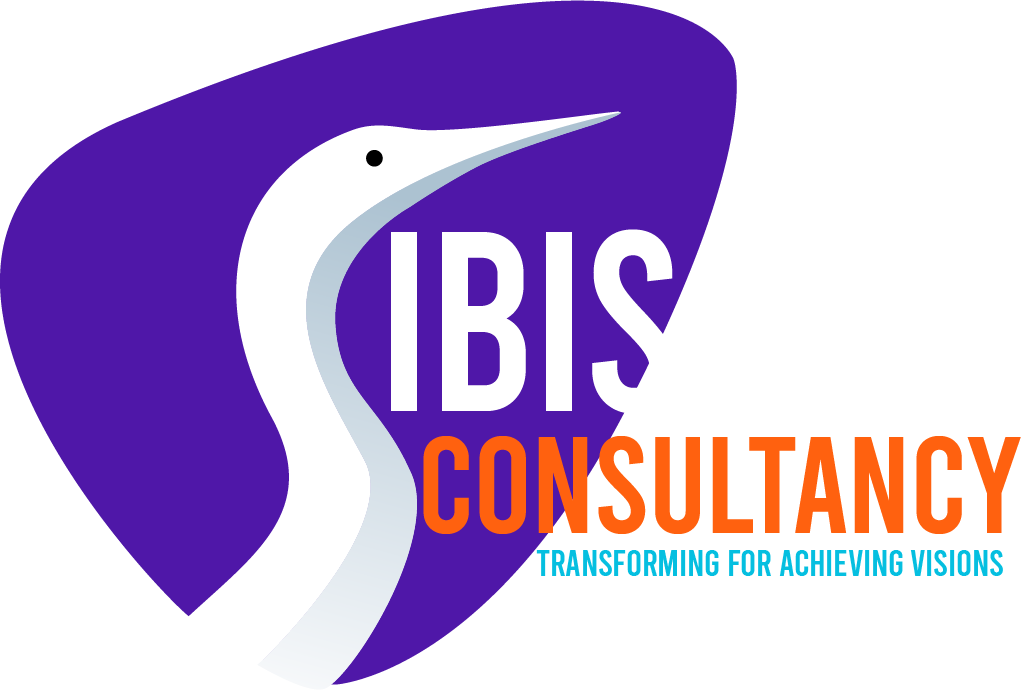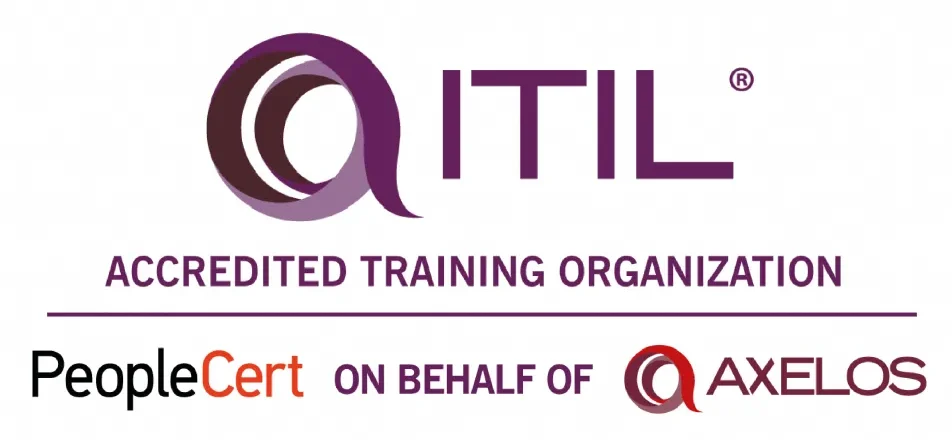ITIL® 4 Practitioner: Incident Management
- Course Duration: 5h
- qualification: ITIL
About this course
Introduction
The ITIL 4 Practitioner: Incident Management practice module is for IT professionals who are involved in minimizing the negative impact of incidents by restoring normal service operation as quickly as possible.
The individuals can demonstrate their understanding and application of the concepts covered in the ITIL 4 Incident Management practice at both strategic and operational levels maximizing value from this practice area.
The ITIL 4 Incident Management Practice enables professionals to efficiently:
- Coordinate incident handling in the organization or in a specific area, such as territory, product, or technology, depending on the organizational design
- Monitor and review the work of teams that handle and resolve incidents
- Coordinate manual work with incidents, especially those involving multiple teams
- Ensure sufficient awareness of the incidents and their status across the organization
- Conduct regular incident reviews and initiate improvements of the incident management practice, the incident models, and the incident handling procedures
- Measure, assess and develop the Incident Management practice capability in their organization by using the ITIL Maturity Model
Who is this course aimed at?
Course Outline
ITIL 4 Incident Management Practice
We start by explaining automation and tooling, and providing recommendations for the automation of incident management.
Capability is the next topic to be covered, with an explanation of how capability criteria support the practice capability development.
Exam/Assessment
ITIL® 4 Practitioner: Incident Management exam:
- This is a multiple-choice ‘Objective Test Question’ (OTQ) exam consisting of 20 questions
- There is a time limit of 30 minutes to complete the exam
- The exam is closed book, with only the provided materials being permitted for use
- The pass mark for the exam is 65%
- In countries where English is a second language, the time allocated for the exam is extended to 75 minutes
What is included?
- Course guide
- Diagram pack
- Full transcript
- Comprehension checks
- Two practice exams
What do you get?
- Fully accredited
- Mock Exams
- Exam voucher included
- Course duration: 5 hours
- Access period: 3 months
- Comprehension checks
- Quizzes & practice exams
- Mobile compatible
FAQs
What is ITIL® 4 Practitioner: Incident Management?
What are the prerequisites for ITIL® 4 Practitioner: Incident Management Practice?
ITIL® 4 Managing Professional Transition Certificate
What is ITSM?
ITSM stands for ‘IT Service Management’. It involves using policies, procedures, and best practices to optimize IT services for clients and employees.
What is ITIL 4?
ITIL 4′ is the latest iteration of ITIL, the world’s leading framework for ITSM. It offers a series of best practices to help IT-powered organizations design, develop, and continually improve their IT services.
What does ITIL stand for?
Previously, ITIL stood for the ‘Information Technology Infrastructure Library’. The framework has evolved to the point where it is updated so often that it cannot be considered a static ‘library’. Because of this, the name no longer stands for anything.
What does the ITIL certification path look like?
Students must initially pass ‘ITIL Foundation’. Once a student has obtained ‘ITIL Foundation,’ they can go on to pass the ‘Practice Manager,’ ‘Managing Professional’ or ‘Strategic Leader’ streams. Obtaining all of the Practice Manager,’ ‘Managing Professional’ and ‘Strategic Leader’ certifications allows students to become an ‘ITIL Master.’
Students interested in a specific area of ITSM can take one of the four ITIL extension modules. These do not contribute to the ITIL Pathway.
How much is ITIL certification worth?
According to Payscale, certified ITIL practitioners can earn between $51,000 and over $259,000 (or £18,000 and over £118,000), depending on their experience, role, and certification level. Even sitting a Foundation course can have significant benefits for ITSM professionals.
How does ITIL work?
ITIL provides users with a set of best practices for creating optimized IT services. It establishes cultures of continuous improvement, ensuring that users can enjoy long-term benefits with IT services continually aligned with business goals and strategies. It also offers proven practices for resource optimization and continuous improvement.
How can ITIL benefit businesses?
ITIL 4 is a modern framework that fully equips users to optimize their IT practices. It creates cultures of continuous improvement, enabling organizations to deliver top-quality IT products and services whilst also continually reviewing their own processes.
The framework is also highly adaptable and can work alongside other popular approaches, such as DevOps. Finally, the framework is set to continue evolving to accommodate developments in technology and best practices. This makes ITIL future-proof for practitioner organizations.
What is AXELOS?
What other frameworks can complement ITIL?
ITIL 4 can be integrated with several other frameworks, including Agile, DevOps, and Lean. Some practitioners even use it alongside PRINCE2.
What you will learn
Introduction to Incident Management:
- Gain an overview of incident management principles, concepts, and objectives within the context of IT service management (ITSM). Understand the importance of incident management in maintaining IT service availability and minimizing business disruptions.
Incident Management Process:
- Learn about the incident management process lifecycle, including incident detection, logging, categorization, prioritization, investigation, resolution, and closure. Understand the roles, responsibilities, and workflows involved in managing incidents effectively.
Incident Classification and Prioritization:
- Explore techniques for classifying and prioritizing incidents based on their impact, urgency, and business impact. Learn how to establish incident categorization and prioritization criteria to ensure timely and appropriate response to incidents.
Incident Escalation and Notification:
- Understand the escalation and notification procedures for incidents that require higher-level intervention or specialized expertise. Learn how to define escalation paths, roles, and communication channels to facilitate timely resolution of critical incidents.
Incident Investigation and Diagnosis:
- Gain skills in incident investigation and diagnosis techniques, such as root cause analysis, fault isolation, and impact assessment. Learn how to gather relevant information, analyze incident data, and identify underlying causes of incidents.
Incident Resolution and Workarounds:
- Learn how to implement incident resolution strategies and workarounds to restore IT services to normal operation as quickly as possible. Explore best practices for incident resolution, including problem diagnosis, error correction, and service restoration.
Incident Closure and Documentation:
- Understand the procedures for incident closure, including verification of service restoration, customer confirmation, and documentation of incident details. Learn how to update incident records, capture lessons learned, and maintain incident documentation for future reference.
Incident Management Tools and Technology:
- Explore the role of incident management tools and technology in facilitating incident detection, logging, tracking, and resolution. Learn how to leverage incident management software, ticketing systems, and communication tools to streamline incident management processes.
Continuous Improvement:
- Understand the importance of continuous improvement in incident management practices. Learn how to conduct post-incident reviews, identify process improvements, and implement corrective actions to prevent recurrence of incidents.
Incident Management Metrics and Reporting:
- Gain insights into incident management metrics and key performance indicators (KPIs) used to measure the effectiveness and efficiency of incident management processes. Learn how to collect, analyze, and report on incident data to track performance and drive improvement.
Overall, the ITIL® 4 Practitioner: Incident Management course equips participants with the knowledge, skills, and best practices needed to effectively manage IT incidents and minimize their impact on IT service delivery and business operations. Participants will learn how to implement incident management processes, procedures, and tools to ensure timely resolution of incidents and improve overall service reliability and customer satisfaction.
Benefits of this course
Enhanced Service Availability:
- By learning advanced incident management techniques and best practices, participants can improve the availability and reliability of IT services. Effective incident management helps minimize downtime and disruptions, ensuring that critical business processes remain operational.
Improved Incident Resolution Times:
- Participants will learn how to streamline incident management processes, enabling faster detection, diagnosis, and resolution of incidents. This leads to shorter resolution times and quicker restoration of IT services, minimizing the impact on business operations.
Enhanced Customer Satisfaction:
- Efficient incident management ensures that customer issues are addressed promptly and effectively. By learning how to prioritize and respond to incidents based on their impact and urgency, participants can enhance customer satisfaction and build trust in IT service delivery.
Optimized Resource Utilization:
- The course teaches participants how to allocate resources effectively to manage incidents in a timely manner. By optimizing resource utilization and coordination, organizations can minimize the impact of incidents on productivity and operational efficiency.
Improved Incident Documentation and Reporting:
- Participants will learn how to accurately document incident details, including root cause analysis, resolution steps, and lessons learned. This enables organizations to maintain a comprehensive incident database for future reference and reporting purposes.
Alignment with ITIL® Best Practices:
- The course aligns with ITIL® best practices for incident management, ensuring that participants gain a solid understanding of industry-standard frameworks and methodologies. This alignment enables organizations to adopt consistent and standardized incident management processes.
Enhanced Problem Management Capabilities:
- Effective incident management lays the foundation for proactive problem management. By identifying and addressing recurring incidents, organizations can prevent future disruptions and improve overall service stability and reliability.
Continuous Improvement Culture:
- The course emphasizes the importance of continuous improvement in incident management practices. Participants will learn how to conduct post-incident reviews, identify opportunities for improvement, and implement corrective actions to enhance incident management capabilities over time.
Professional Development and Career Advancement:
- Completion of the ITIL® 4 Practitioner: Incident Management course demonstrates participants’ expertise in incident management and IT service delivery. This certification can enhance their professional credentials and career opportunities in IT service management roles.
Organizational Resilience:
- Effective incident management contributes to organizational resilience by enabling timely responses to disruptions and minimizing their impact on business operations. By investing in incident management training, organizations can strengthen their ability to adapt to and recover from IT incidents effectively.
Overall, the ITIL® 4 Practitioner: Incident Management course equips participants with the knowledge, skills, and best practices needed to effectively manage IT incidents and enhance service reliability, customer satisfaction, and organizational resilience.

